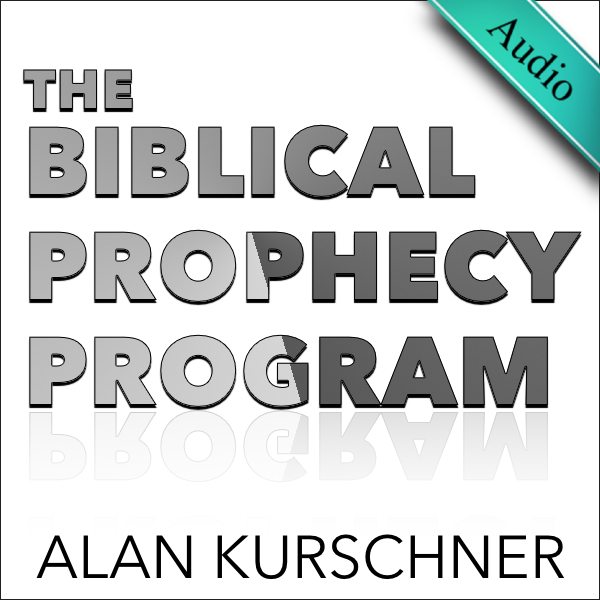In this lecture, progressive dispensational theologian Craig Blaising explains why God works with Israel and the church at the same time. (See also my five part podcast series on this very topic below.) Blaising also gives an excellent explanation on the nature and relationship between Israel and the church. While Blaising maintains his pretribulationism, his […]
Craig Blaising
At the end of the day, Amillennialism uses allegorical interpretation
[In response to covenant/amillennial theology, Blaising and Bock write:] “Rather than talking about an earthly, carnal kingdom, as the original language of the human prophet suggests, the “unconscious symbol” is the new heavens and new earth as the New Testament indicates by its emphasis on this theme and its exclusion of discussion about the land. […]
On Misrepresenting Dispensationalism
Craig A. Blaising tells the following story, Recently, one of my students wrote a paper on current issues in dispensationalism. At the beginning he quoted a prominent pastor who identified dispensationalism as that dangerous heresy of date-setting. The student, of course, dismissed this charge as simply uninformed. Dispensationalism is a futurist premillennialism. Its very reception […]
Craig Blaising on Premillennialism in a nutshell
Christ comes in 19:11 and judges the nations who fornicated with Babylon, who consolidated their loyalty with the beast, and who gathered to war against Christ. He casts the beast and false prophet into the lake of fire. He imprisons the devil. He raises the martyrs murdered by Babylon and the beast. He and his […]
Will all the inhabitants of the nations be destroyed at the battle in Rev 19?
Craig A. Blaising writes: [Fowler White] argues that a sequential interpretation of 19:11—20:3 is not logically coherent, that its “credibility. . . suffers considerably” because at the Parousia, Christ will destroy all the in inhabitants of all the nations except the redeemed (“Reexamining the Evidence for Recapitulation in Rev. 20:1–10,” 325). Thus, he concludes, there […]
SIGN The Alliance for the Peace of Jerusalem
This week I signed The Alliance for the Peace of Jerusalem. I signed the Statement because: “The Alliance for the Peace of Jerusalem is an organization dedicated to facilitating a better public understanding of the complexities of the Middle East including its roots in history and the Bible. The group, which is comprised of key faith […]
(Audio) The New Christian Zionism: History, Future Israel, and Supersessionsim
CLICK HERE and scroll down a bit to Episode 322 Craig Blaising, Darrell Bock, and Gerald McDermott January 10, 2017 Timothy George talks with Gerald McDermott, Darrell Bock, and Craig Blaising about their new book, “The New Christian Zionism” Craig Blaising is Executive Vice President and Provost of Southwestern Baptist Theological Seminary in Ft. Worth, Texas. Darrell […]
New Christian Zionists Seek Distance From ‘Wild, Crazy Popular Apocalypticism’ – Ep. 41
Podcast: Play in new window | Download | Embed
http://traffic.libsyn.com/thebiblicalprophecyprogram/New_Christian_Zionists_Seek_Distance_From_Wild_Crazy_Popular_Apocalypticism.mp3Podcast: Play in new window | Download | EmbedI commented on the following article from the Christian Post, as well as talked about a couple of semi-related issues. New Christian Zionists Seek Distance From ‘Wild, Crazy Popular Apocalypticism’ There was a recent conference, “People of the Land: A Twenty-First Century Case for Christian Zionism” that […]
Lectures on The People, The Land, and the Future of Israel
http://videos.chosenpeople.com/index.php Recently, Chosen People Ministries held a theological conference in New York in order to present a biblical case for the restoration of Israel to the land in a future kingdom. There were a number of speakers addressing a variety of topics. For instance, Darrell Bock spoke on the future of Israel according to […]
Part 6 – Why the “Coming” in Matthew 24:36–44 Refers Back to Verses 30–31
This is the last installment of our six-part series. The last reason why verses 36–44 refer to the immediate context of the coming in verses 30–31 is found in a helpful parallel passage in the gospel of Luke. The passage in Luke 17:22–37 parallels Matthew 24:23–41. Luke reads: (22) Then he said to the disciples, […]
Part 5 – Why the “Coming” in Matthew 24:36–44 Refers Back to Verses 30–31
The fourth reason why verses 36–44 refer to the immediate context of the coming in verses 30–31 is found in the use of the term parousia. The term is used only four times in the gospels and are all found in Matthew 24:3, 27, 37, 39. Hart argues the parousia mentioned in verses 37 and […]



